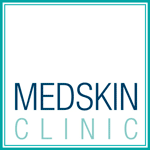FREE Consultation 0330 043 9943

Skin tag Removal Luton
Looking for Skin tag Removal in Luton
Skin Tag Removal Luton – At MedSkin Skin Tag Removal Luton, we’re committed to delivering expert and all-encompassing treatments for prevalent skin conditions like moles, milia, and skin tags. These issues can affect individuals’ skin and self-esteem in many ways, causing physical and psychological discomfort. Therefore, having access to effective treatment solutions is crucial.
Moles, pigmented clusters formed due to the accumulation of melanocytes – the melanin-producing cells – can vary in colour and are mostly harmless. However, there is a risk that some moles might evolve into melanoma, a dangerous type of skin cancer. It’s imperative to have moles checked regularly by a dermatologist to monitor and manage any alterations.
Milia appear as small, white bumps when keratin, a protein, becomes trapped under the skin’s surface. While they typically manifest on the face, particularly around the eyes and nose, they can also develop in other bodily areas. Generally non-threatening and self-resolving, stubborn cases of milia might require professional dermatological treatment for removal.
Skin tags are small, benign growths of flesh connected to the skin by a short stalk. Commonly forming in areas of skin friction – such as the neck, armpits, and groin – skin tags, though harmless, can cause irritation or discomfort, prompting those affected to seek removal options.
Which Treatment Is Right for You?
At Skin Tag Removal Luton, we’re proud to present a selection of effective treatment options specifically designed for tackling moles, milia, and skin tags, ensuring that every patient receives the best possible care for their unique condition.
The CryoPen treatment stands out as one of our top services. This cutting-edge, non-surgical technique employs liquid nitrogen to accurately freeze and eradicate skin lesions. Ideal for treating moles, milia, and skin tags, the CryoPen allows for a fast and effective treatment process. During the procedure, a skilled practitioner applies a precise jet of liquid nitrogen using a fine probe, freezing the problematic tissue. Consequently, the lesion detaches from the surrounding skin and falls off within a few weeks.
Our commitment at the Skin Tag Removal Luton clinic goes beyond offering superior treatments. We aim to support you throughout your journey to achieve optimal skin health. Our team, comprised of seasoned professionals, is on hand to provide advice, support, and care customised to your personal requirements.
We understand the significance of finding the right treatment for your needs and are available to answer any questions concerning our services. Whether it’s the removal of an irritating skin tag, treating milia, or having a mole assessed and addressed, our objective is to ensure a comfortable, secure, and positive treatment experience.
Your health, comfort, and satisfaction are the paramount concerns at the Skin Tag Removal Luton Clinic.
If you require assistance or wish to book an appointment, do contact our Skin Tag Removal Luton Team or complete our form, and one of our nurses will promptly get in touch with you.
Fill this Form to connect via SMS
What does Skin Tag Removal Treatment Involve?
What is a Skin Tag
A skin tag is a small, soft piece of skin that sticks out on a thin stalk. They’re common and harmless and can appear anywhere on the body. People often find them on the neck, underarms, around the groin, or under the breasts. Skin tags are made of loose collagen fibers and blood vessels surrounded by skin. They’re more common in older adults, people with certain health conditions, or those who are overweight. Skin tags don’t usually cause pain or discomfort, but they can be annoying. If someone doesn’t like how a skin tag looks or if it’s irritating, all skin tags can easily be removed.

Skin Tag Removal Luton Questions

What exactly are skin tags, and how do they form?
Skin tags are diminutive, non-cancerous protrusions that frequently emerge on parts of the body where skin comes into contact with other skin or clothes. They are usually without pain and not harmful, though at times they may lead to irritation or unease if they snag on clothing or Jewellery.
When is it advised to remove skin tags?
The recommendation for removing skin tags often arises for aesthetic reasons or if the tags lead to discomfort because of their position or size. Although skin tags are typically benign, their removal might be deemed necessary if they become irritated, start to bleed, or if there’s concern they might indicate a more grave health issue.
There could be many reasons why you’d want to remove a cyst. Common reasons may include disliking its appearance, experiencing discomfort due to its size or location (such as when brushing your hair, wearing certain clothes or Jewellery, or shaving), inflammation, the sudden growth of the cyst, its tenderness or itchiness, or if it has burst, leaked, developed an abscess. As they grow larger, cysts are likelier to rupture and cause discomfort, making earlier removal when they’re smaller much simpler.
What are the various techniques for removing skin tags?
Excision
Excision is the process of removing the skin tag using a scalpel or scissors after applying a local anaesthetic to numb the area. This technique is particularly effective for removing larger skin tags or those in delicate areas.
Cryotherapy
Cryotherapy entails the application of liquid nitrogen to freeze the skin tag, leading it to detach over time. Suitable for smaller skin tags, this approach might necessitate several sessions to achieve full removal.
Ligation
Ligation involves constricting the base of the skin tag with a piece of thread or suture, thus halting its blood flow and causing it to eventually drop off. While less frequently employed, this technique can be effective for larger tags.
What can patients anticipate during a skin tag removal process?
Consultation
Prior to the procedure, patients will undergo a consultation with their healthcare practitioner to discuss the most suitable method for removal, along with any potential risks or complications that may arise.
Procedure
Throughout the procedure, the surrounding area of the skin tag will be cleansed, and local anaesthetic might be administered to desensitise the area. Subsequently, the chosen method for removing the skin tag will be conducted, leading to the removal of the skin tag.
Aftercare
Following the procedure, it’s common for patients to experience slight discomfort or redness at the site of removal. You will receive instructions to maintain the area clean and dry and to refrain from touching or aggravating the area.
While removing skin tags is predominantly safe, several risks and potential complications should be considered, such as:
Bleeding: There can be some bleeding during or following the procedure, notably with methods like excision.
Infection: The area where the skin tag was removed is at risk of infection, especially if the aftercare guidelines are not adhered to properly.
Scarring: There is a possibility of scarring at the site of removal, particularly with techniques such as excision or if the site is not cared for appropriately after the procedure.
The time it takes to recover after having a skin tag removed can differ based on the removal technique used and the individual’s capacity for healing. Typically, most patients may find that the area will heal in anything from a few days to a couple of weeks. Adhering to any aftercare guidance given by the healthcare professional is crucial to ensure a smooth healing process and to reduce the likelihood of any complications.
The removal of skin tags is a routine and generally straightforward procedure that can enhance both physical comfort and self-esteem. By gaining knowledge about the various methods of removal, understanding potential risks, and comprehending the aftercare necessities, patients can make informed choices regarding their skin health and welfare. If you have any issues about skin tags or if you’re contemplating having them removed, it’s advisable to seek tailored advice and treatment options from your healthcare provider.
We also offer Wart Removal

Book your free consultation now
We provide FREE, no-obligation consultations at our clinics to discuss your goals and to explore your treatment options.
